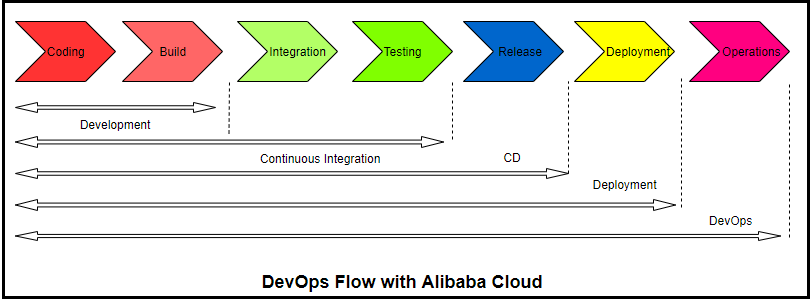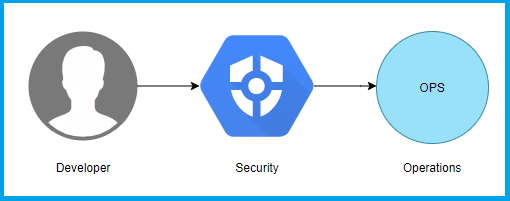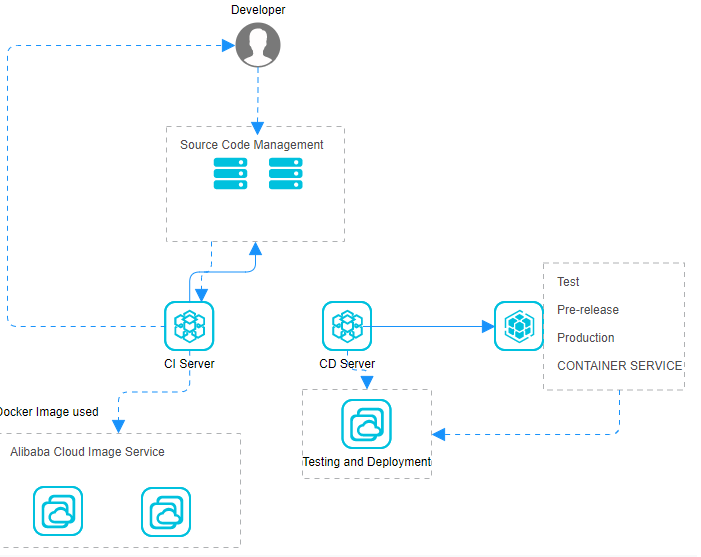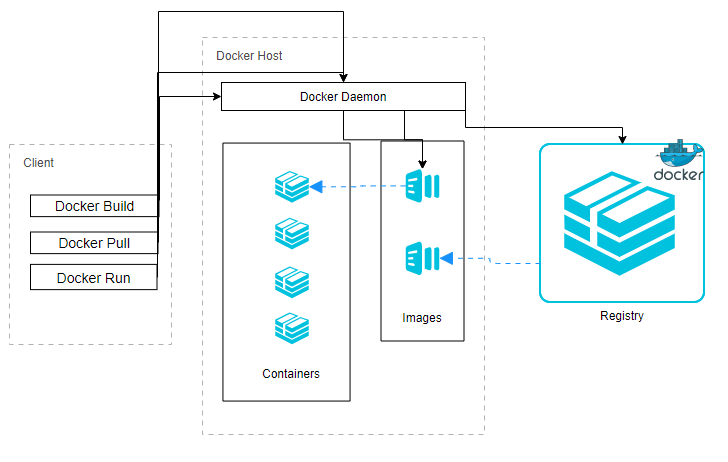By Shantanu Kaushik
DevOps has been evolving rapidly, and the development phase is more than a decade old. DevOps no longer focuses on the developer and operations team. The focus of DevOps has evolved beyond emphasizing continuous delivery and integration. Today, it involves better analytics within a solution to understand what customers need from a solution, removing the constraints between the business solution and customers to extract more value from a pipeline.
In this two-part article series, we will discuss the potential DevOps trends in 2021.
2020 brought the world to its knees. Economies crumbled, and technology was the only driving force behind any type of movement. The strong facilitation of technology over the last decade paid off, and we fought the COVID-19 pandemic with strong technological solutions. Alibaba Cloud shone as the driving force behind many businesses and organizations throughout the COVID-19 pandemic.
First, let's take a look at what the DevOps pipeline looks like today on the chart below:

Digital Transformation is driving organizations towards a shift in culture and leadership norms. Teams and the core values and dynamics of teams will shift to accommodate DevSecOps. Data Analytics and Machine Learning for AI (DataOps) will be critical. DataOps will revolutionize DevOps to a level that enterprises will have to maintain a constant management scenario for changing environments and pipelines.
The DevOps security testing cycle will require automation where automation cuts down on the time required for security implementation. 2021 will see software application security that will include a more progressive approach where teams will have to take responsibility for security implementation.

Security teams will provide the necessary support for the DevSecOps process to get fully implemented without any glitches. Fully leveraging automation will be the key to achieving maximum velocity. Developing a standard practice to implement cloud-native security will be the focus for organizations.
Alibaba Cloud Container Service for Kubernetes (ACK), Function Compute (serverless), and other cloud-native technologies will be the most necessary shift in security with DevSecOps. Enterprises are moving to the cloud to facilitate the delivery of new features and rapidly provide security teams with new tools and services to ensure a well-equipped practice.
DevSecOps will take advantage of developers and security professionals as they combine their expertise to enable security for a business application. This will help provide better application security. With containers, applications within a microservices environment that are containerized can leverage more of a security practices integration.
Let's take a look at Kubernetes and Docker architecture on the Alibaba Cloud platform on the chart below:

Kubernetes with Alibaba Cloud

Docker with Alibaba Cloud
2021 will see a shift towards security practices integration. It will be imperative for the teams to provide high-velocity releases with strong security integration.
Threat modeling will be a necessity. Application security will be facilitated by security professionals that can provide detailed reports that emphasize the value proposition of threat modeling.
In 2021, threat modeling will be applied by developer teams for cross-team functionality, where developers will occasionally assume the responsibility of security professionals. DevOps is all about collaboration, and security teams can enable the major shift towards how security culture can be integrated at a different scale.
As a result of the COVID-19 pandemic, the software security landscape deaccelerated. However, controlling the evolution of DevOps is not possible, as teams continue to grow and adapt. DevOps represents the lead in evolution for application development and delivery. The operations architecture and how applications change with changing business needs will change how the application security approach evolves.
Delivery velocity and cloud transformation will be the prime movers in deciding how security is integrated within the DevOps pipeline. Cloud transformation and application security can develop an entire practice that will facilitate and orchestrate resources that will help with security automation to enable DevSecOps within the DevOps pipeline.
Delivery and Integration are two steps in a cycle, where security teams will have to provide tools to ward-off potential vulnerabilities during development and provide policy enforcement for velocity. Alibaba Cloud infrastructure and deeply integrated products already provide the necessary support throughout the DevOps pipeline. DevSecOps can help reinforce the policy management and facilitate algorithms for risk-based vulnerability management.
DevOps and the related security teams can start using AI-based build reception solutions that will enable infrastructure management dependent on application resources and planning. It will significantly decrease any manual interception for vulnerability management.
DevOps and security haven't been able to walk hand-in-hand yet. Typically, the idea of security integration was thought of after the build was completed. With DevSecOps, an idea emerged. This idea has the potential to end the struggle associated with the implementation of security across ever-evolving and complex environments.
For DevOps and security, 2021 should show new reactive security approaches. These approaches will rely on intelligent code that will implement security throughout the infrastructure and application core without much hassle.
Leadership can increase the value of any SDLC. DevOps is already a hot commodity that has shown signs of a bigger and better approach over the past few years. DevOps doesn't work as a plug and play system does, but business leadership based on success stories is a prime mover for other organizations to adopt DevOps.
Business leadership has helped organizations overcome the damage from the COVID-19 pandemic and move forward in the new normal. In 2020, organizations showcasing business leadership will reinforce the belief in the software delivery model for a lot of businesses and organizations. This business continuity trend will get better and will show more potential in 2021 and beyond.
Hybridity will take over a major chunk of the cloud backbone and account for a more defined value delivery for customers. Hybrid product teams working off-site will require more skills related to managing and maintaining workflow.
The hybrid model will enable such practices by bringing together and evolving from public and private cloud workload sharing to a service sharing setup. Software as a Service (SaaS) is also on the rise. Multiple products and solutions will require cross-team management. This cross-functional team setup will allow professionals to learn the other side of things. Developers can learn about operations or security, and operations can learn about the developers. This will enable teams to evolve together. A wider skill set, including security, automation, and other skills, will provide diversity towards maintaining competency.
Any team working with product and solution arrangement will go through a tight-benchmark when extracting value from a solution. Here, DataOps is the key. A team and its competency have to be measured on the customer value extracted from the solution, not just on features or the solution.
Leadership is not just about velocity and the number of solutions; it is about strategic changes in how solutions should adapt to the changing world.
The next part of this article series is strategically planned for the first week of January 2021. Part 2 will talk about Development and Operations scenarios and how they will showcase new trends. We will discuss analytics and the autonomy of DevOps within an organization. We will showcase some exclusive emerging trends that will play a significant role in the classification of DevOps in 2021 and beyond.

2,593 posts | 792 followers
FollowAlibaba Clouder - January 4, 2021
Alibaba Clouder - December 25, 2020
Alibaba Clouder - February 9, 2021
Alibaba Cloud Community - March 8, 2022
Alibaba Clouder - March 30, 2021
Alibaba Developer - November 17, 2021

2,593 posts | 792 followers
Follow Platform For AI
Platform For AI
A platform that provides enterprise-level data modeling services based on machine learning algorithms to quickly meet your needs for data-driven operations.
Learn More Epidemic Prediction Solution
Epidemic Prediction Solution
This technology can be used to predict the spread of COVID-19 and help decision makers evaluate the impact of various prevention and control measures on the development of the epidemic.
Learn More Alibaba Cloud Flow
Alibaba Cloud Flow
An enterprise-level continuous delivery tool.
Learn More DevOps Solution
DevOps Solution
Accelerate software development and delivery by integrating DevOps with the cloud
Learn MoreMore Posts by Alibaba Clouder